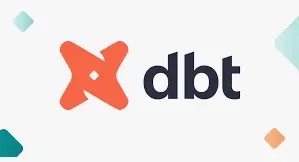This plan includes
- Limited free courses access
- Play & Pause Course Videos
- Video Recorded Lectures
- Learn on Mobile/PC/Tablet
- Quizzes and Real Projects
- Lifetime Course Certificate
- Email & Chat Support
What you'll learn?
- You will learn practical DBT based tools and techniques that can be used for treating trauma and other mental disorders
- Introduction to DBT- Here you will get an outline of what are the learning objectives of the course, concepts of Dialectics and Behavior Therapy, purpose of DBT, its history, its uniqueness and importance, what is Borderline Personality Disorder(BPD) and Bipolar Disorder(BD), types of therapies, treatment of other mental disorders, how it works, pros & cons of DBT, its uses and effectiveness, difference between CBT & DBT.
- A DBT Demo which will help you understand how DBT therapy sessions are conducted.
- Difference between CBT & DBT- Here you will learn the exact difference between the two therapies. You will learn the treatment methods, difference in goals, and difference in philosophies, how each session differs, difference in their application & how to decide whether CBT or DBT will work for you.
- DBT & Treatment of Trauma- Here you will learn the DBT methods for treatment of Borderline Personality Disorder (BPD) & Post Traumatic Stress Disorder (PTSD), how DBT is designed for treatment of PTSD, its symptoms, how it helps reduce trauma related anxieties, how DBT works with CBT and Prolonged Exposure Therapy(PET), and Eye Movement Desensitization Reprocessing(EMDR
- DBT Skill Modules- Here you will learn 4 different skill modules in DBT and their usefulness: Mindfulness, Distress Tolerance, Interpersonal Effectiveness & Emotion Regulation
- Mindfulness & Treatment of Trauma- Here you will learn about DBT Mindfulness, Core Mindfulness and its effectiveness.
- Treatment of Trauma using Distress Tolerance- Here you will learn about Distress Tolerance, various skills required for treatment, how to treat distress tolerance to treat trauma and how to practice distress tolerance skills
- Treatment of Trauma using Emotion Regulation- Here you will learn about Emotional Regulation, its goals, how to understand emotions and how to label them, how to reduce emotional vulnerability, decrease emotional suffering, its importance and how emotion regulation helps in reducing trauma
- Interpersonal Effectiveness- Here you will learn about interpersonal effectiveness skills, 4 acronyms signifying Core Skills like ‘THINK’, ‘FAST’,
Course Overview
What is DBT?
DBT or Dialectical Behaviour Therapy is a specialised, useful and time-tested method to treat various trauma-related mental disorders. It works exceedingly well in Post-Traumatic Stress Disorder, Panic Disorder, Borderline Personality Disorder, Bipolar Disorder, Depression, etc. DBT incorporates a philosophical process called dialectics. Dialectics is based on the concept that everything is composed of opposites and that change occurs when there is a "dialogue" between opposing forces. It is also useful to treat people experiencing difficulty with emotional regulation or exhibiting self-destructive behaviours and having thoughts of suicide.
How is it Different from CBT?
Although DBT & CBT are two form of psychotherapies or ‘Talk Therapies’ based on common concepts, there are a lot of differences between them. Dialectical behaviour therapy or DBT is based on CBT, with a greater focus on emotional and social aspects. DBT was developed to help people cope with extreme or unstable emotions and harmful behaviours. There are marked differences in terms of goals, philosophies, types of sessions and applications. Clinical research has shown that DBT is most effective for Borderline personality disorder, Eating disorders, Self-harm, Substance use disorders and Trauma.
What is the Importance of this Course?
Various studies indicate that one in four people in the world will be affected by mental or neurological disorders at some point in their lives. Around 450 million people currently suffer from such conditions, placing mental disorders among the leading causes of ill-health and disability worldwide. In terms of quality years of life lost due to disability or death, China is ranked on top in the world followed by India and USA. As per WHO, certain mental disorders like Anxiety Disorders, including panic disorder, Obsessive-Compulsive Disorder(OCD), Phobias, Depression, Borderline Personality Disorder(BPD), Bipolar Disorder(BD), and other mood disorders, Eating Disorders, Personality Disorders, Post-Traumatic Stress Disorder(PTSD) have been on the rise worldwide, especially due to #Covid19. Treatments are available, but nearly two-thirds of people with a known mental disorder never seek help from a health professional due to unawareness and social stigma. It is therefore important to spread the awareness of the mental disease and prevent its aggravation through timely intervention.
How will this Course Help You?
This course attempts to make you learn the basic DBT concepts and techniques and apply them to help people in their work environment, neighbourhood and family to overcome the ill effects of mental disorders. It is a beginner level course where you can easily grasp the concepts and the methodologies in simple steps. The instructor for this course is Najwa Bashir, a counselling Psychologist who has made several courses on psychotherapies. The teaching style is simple and easy so that the students can easily grasp and digest the subject. The instructor makes the students grasp the key concepts step by step and guide them to complex areas of learning. You can complete this ‘DBT for Treating Trauma for Beginners Course’ in your own time and pace. You can easily complete the course in 16 days by completing each section in one day and performing the Self-Achievement Test the next day. It is ideal for first time learners who have no idea of DBT.
What does this Course contain?
The course is divided into 9 sections, with one being an introduction video and the 8 sections being lessons. The sections are replete with video lectures & Demo Videos in MP4 version, Self-Help Worksheets from well reputed websites, reference articles, DBT Manuals, Psychology Dictionary and Self Achievement Test with answer key. This course is not a substitute for university approved courses but it acts as an aid for quicker learning.
Pre-requisites
- No prior knowledge of Cognitive Behavioural Therapy (DBT) is required to enrol in this course - making it ideal for those who are new to exploring this exciting form of Dialectical Behavior Therapy (DBT).
Target Audience
- This Course is for first time Learners, Students, Health Workers, HR Executives, Parents, Community Workers & those interested to know about DBT, its benefits and process to transform people’s lives.
- This course is not for Professionals, Teachers and those already in the field of DBT Therapy.
Curriculum 19 Lectures 01:38:42
Section 1 : Introduction to DBT
- Lecture 2 :
- Introduction to DBT
- Lecture 3 :
- DBT Demo
- Lecture 4 :
- MCQs- 15 Questions
Section 2 : Distinction Between CBT & DBT
- Lecture 1 :
- Distinction Between CBT & DBT
- Lecture 2 :
- MCQs- 15 Questions
Section 3 : DBT & Treatment of Trauma
- Lecture 1 :
- - DBT & Treatment of Trauma
- Lecture 2 :
- MCQs- 10 Questions
Section 4 : Four Skill Modules in DBT
- Lecture 1 :
- Four Skill Modules in DBT
- Lecture 2 :
- MCQs- 10 Questions
Section 5 : Mindfulness & Treatment of Trauma using Mindfulness
- Lecture 1 :
- Mindfulness & Treatment of Trauma using Mindfulness
- Lecture 2 :
- MCQs- 15 Questions
Section 6 : Distress Tolerance & Treatment of Trauma using Distress Tolerance
- Lecture 1 :
- Distress Tolerance & Treatment of Trauma using Distress Tolerance
- Lecture 2 :
- MCQs- 15 Questions
Section 7 : Emotional Regulation & Treatment of Trauma using Emotional Regulation
- Lecture 1 :
- Emotional Regulation & Treatment of Trauma using Emotional Regulation regulation
- Lecture 2 :
- MCQs- 15 Questions
Section 8 : Interpersonal Effectiveness & Treatment of Trauma using Interpersonal Effectiven
- Lecture 1 :
- Interpersonal Effectiveness & Treatment of Trauma using Interpersonal effectiven
- Lecture 2 :
- MCQs- 15 Questions
Section 9 : Summing Up:
- Lecture 1 :
- Summing Up:
Our learners work at
Frequently Asked Questions
How do i access the course after purchase?
It's simple. When you sign up, you'll immediately have unlimited viewing of thousands of expert courses, paths to guide your learning, tools to measure your skills and hands-on resources like exercise files. There’s no limit on what you can learn and you can cancel at any time.Are these video based online self-learning courses?
Yes. All of the courses comes with online video based lectures created by certified instructors. Instructors have crafted these courses with a blend of high quality interactive videos, lectures, quizzes & real world projects to give you an indepth knowledge about the topic.Can i play & pause the course as per my convenience?
Yes absolutely & thats one of the advantage of self-paced courses. You can anytime pause or resume the course & come back & forth from one lecture to another lecture, play the videos mulitple times & so on.How do i contact the instructor for any doubts or questions?
Most of these courses have general questions & answers already covered within the course lectures. However, if you need any further help from the instructor, you can use the inbuilt Chat with Instructor option to send a message to an instructor & they will reply you within 24 hours. You can ask as many questions as you want.Do i need a pc to access the course or can i do it on mobile & tablet as well?
Brilliant question? Isn't it? You can access the courses on any device like PC, Mobile, Tablet & even on a smart tv. For mobile & a tablet you can download the Learnfly android or an iOS app. If mobile app is not available in your country, you can access the course directly by visting our website, its fully mobile friendly.Do i get any certificate for the courses?
Yes. Once you complete any course on our platform along with provided assessments by the instructor, you will be eligble to get certificate of course completion.
For how long can i access my course on the platform?
You require an active subscription to access courses on our platform. If your subscription is active, you can access any course on our platform with no restrictions.Is there any free trial?
Currently, we do not offer any free trial.Can i cancel anytime?
Yes, you can cancel your subscription at any time. Your subscription will auto-renew until you cancel, but why would you want to?
Instructor

11745 Course Views
8 Courses



 Tech & IT
Tech & IT
 Business
Business
 Coding & Developer
Coding & Developer
 Finance & Accounting
Finance & Accounting
 Academics
Academics
 Office Applications
Office Applications
 Art & Design
Art & Design
 Marketing
Marketing
 Health & Wellness
Health & Wellness
 Sounds & Music
Sounds & Music
 Lifestyle
Lifestyle
 Photography
Photography









.jpg?crop=smart&width=600&height=400)
.jpg?crop=smart&width=600&height=400)






.jpg)






